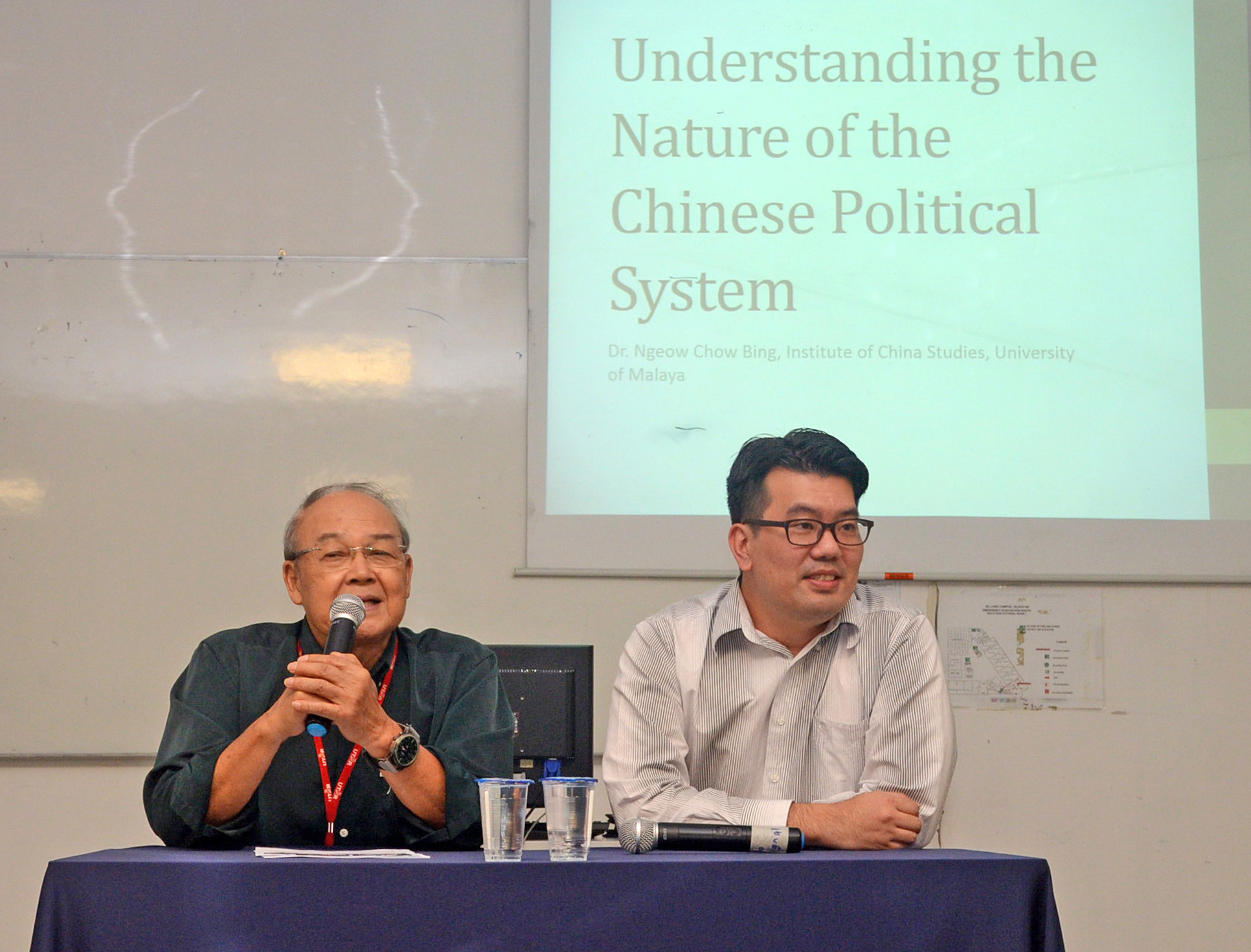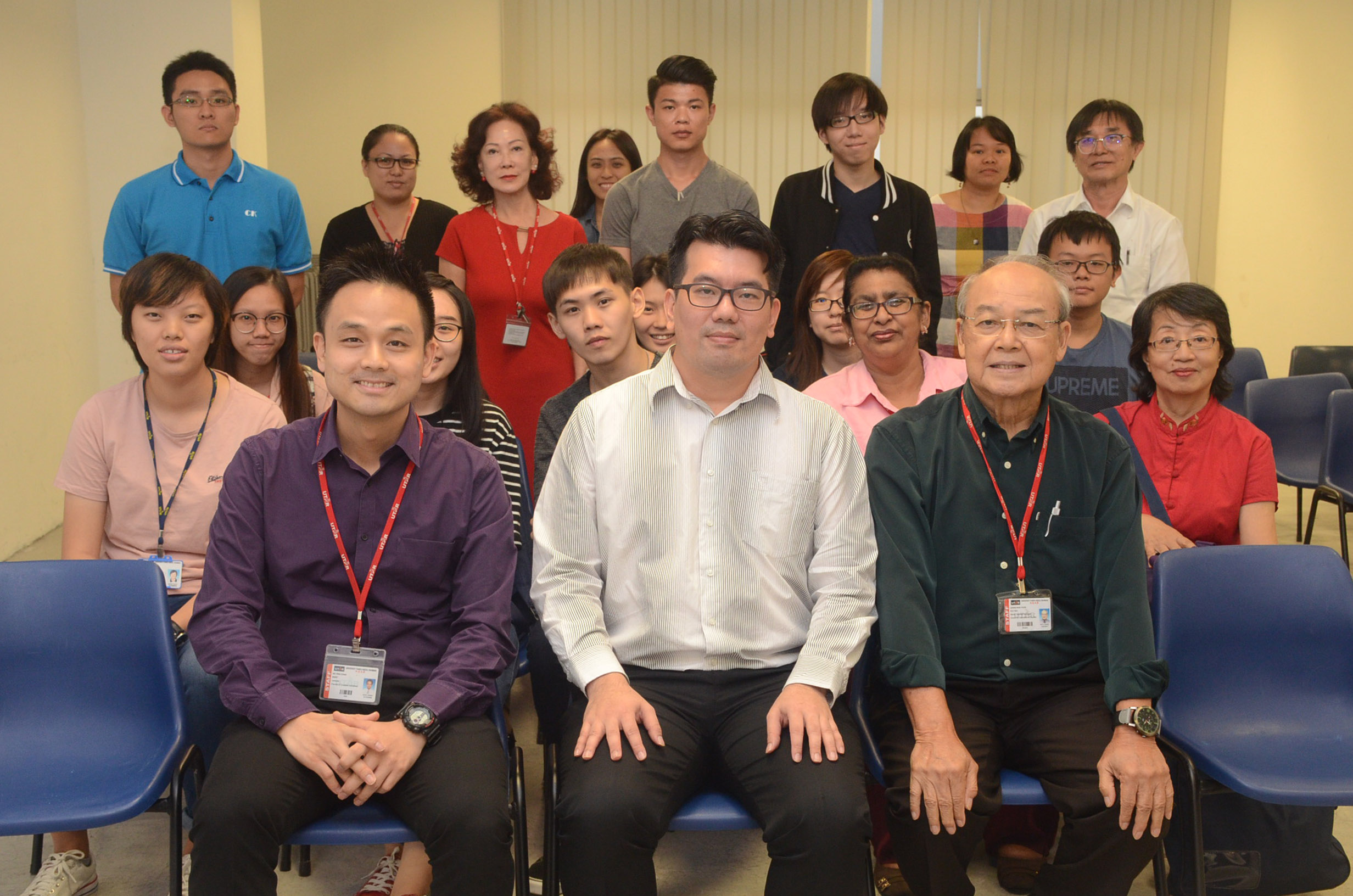
 Moderator
Dr Stephen Leong (left) and Speaker Dr Ngeow (right)
Moderator
Dr Stephen Leong (left) and Speaker Dr Ngeow (right)
A talk titled “Understanding the nature of Chinese Political System” was co-organised by the Centre for Extension Education (CEE) and Centre for International Studies (CIS) on 28 February 2018 at Sungai Long Campus.
The invited speaker was Dr Ngeow Chow Bing from Institute of China Studies of University Malaya. His talk covered a few aspects of Chinese Political System: The rise of China, Basics of Chinese Political System, and Comparability in understanding the Chinese Political System. He briefly explained the basics of Chinese Political System. “Chinese Political system is not a democracy, at least not the democracy most people understand. There are also conceptual labels such as authoritarianism, dictatorship and tyranny to help us understand the Chinese Political System,” said Dr Ngeow.
Dr Ngeow stated that Politburo Standing Committee (PSC), a mixture of provincial leaders, central party, government leaders and military leaders, is the one who decides who gets elected on what criteria and on what basis. The PSC leaders usually comes from the division of labour in policy areas like organisational, economics, propaganda, law and politics, military, and foreign affairs. On the other hand, the overall work of PSC is taken by General Secretary, which has the power to convening and presiding the meetings of PSC.
Central Committee (CC),
convenes at least one meeting per year, which is called a plenum or
plenary session, attended by all CC members and alternate members as
well as other invited participants without voting rights. Generally, the
plenum will be conducted 7 times. The first and second plenum sort out
party and state personnel appointments; the third plenum discusses
comprehensive reform program; the fourth plenum is in charge of the
party building or rule of law; the fifth plenum designs a five-year
plan; the sixth plenum discusses on the cultural policies; and the
seventh plenum prepares the next National Congress. Personnel changes
occur in
between of the plenums.
 A
group photo of speaker, organisers and participants of the talk
A
group photo of speaker, organisers and participants of the talk
© 2019 UNIVERSITI TUNKU ABDUL RAHMAN DU012(A).
Wholly owned by UTAR Education Foundation Co. No. 578227-M LEGAL STATEMENT TERM OF USAGE PRIVACY NOTICE